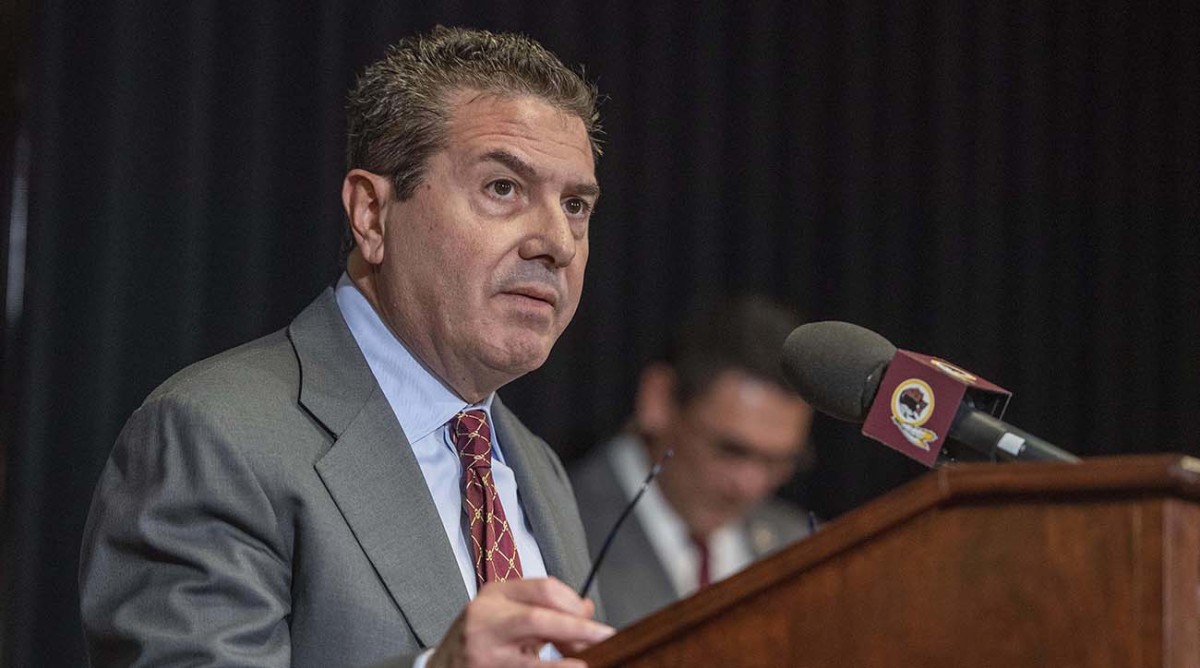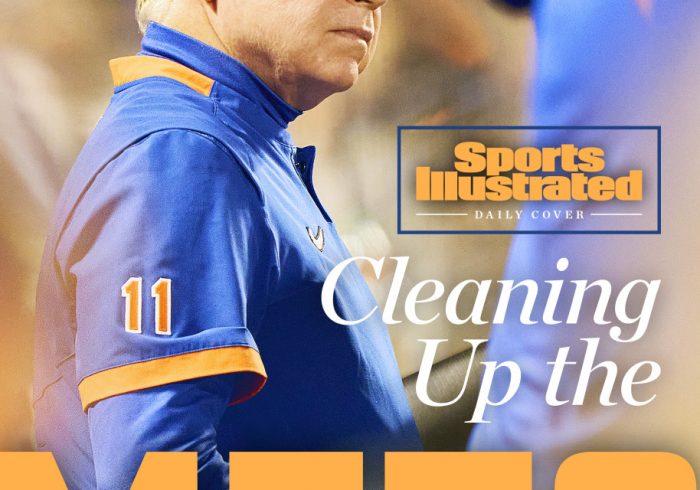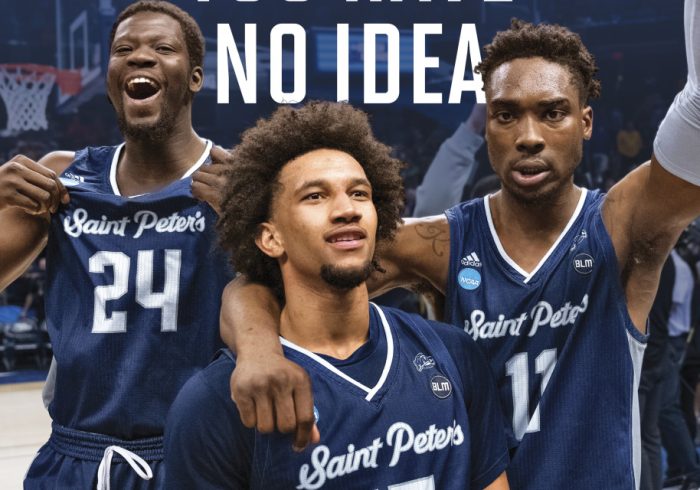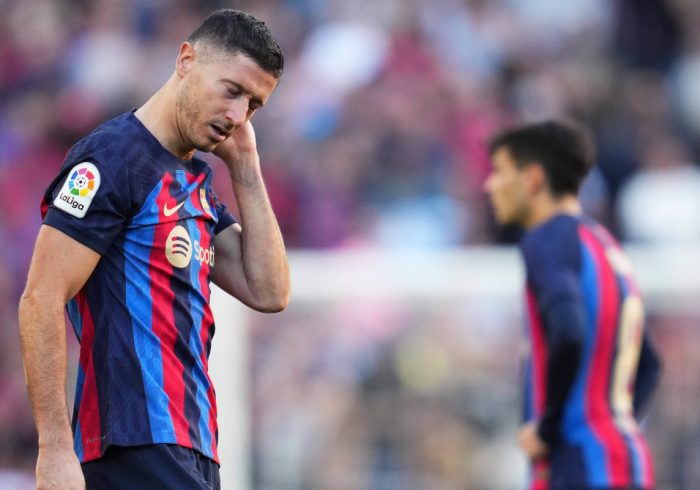Maybe it’s not completely over. But it sure seems like the clock is running out on Commanders owner Dan Snyder.
Two weeks ago at the NFL’s fall meeting, commissioner Roger Goodell, in a special privileged meeting, addressed the room made up exclusively of owners and their families on Snyder’s status with a direct message—let the process play out. Goodell’s words came in the wake of Colts owner Jim Irsay’s calling for the league to consider removing Snyder as Commanders owner. And many in the room took a deeper message from the directive.
One, the thinking went that Goodell was basically asking the owners to trust that the league and its lead investigator, Mary Jo White, would land on the conclusion that most wanted, producing findings that would be enough to oust Snyder, who has cultivated a culture of sexual harassment allegations, as well as a toxic work culture on his watch as Washington owner. Two, they also saw Goodell’s words as a warning to Snyder, himself, that for better or worse, there was no stopping what was coming.
Taking that into account, Wednesday morning’s events are nothing less than monumental.
Forbes broke the news early in the day that the Snyders had hired Bank of America to explore selling either pieces of the team or the entire franchise. Less than a half hour later, the Commanders issued a statement confirming the report. While in the past Snyder had always been combative about the idea that he’d be compelled to sell the team, there was none of that this time around.
On Oct. 13, Snyder’s team released a statement saying an ESPN exposé on his ownership was “clearly part of a well-funded, two-year misinformation campaign to coerce the sale of the team, which will continue to be unsuccessful.” Five days after that, in response to Irsay’s comments, the Commanders released another statement saying that, after White’s investigation, “Mr. Irsay will conclude that there is no reason for the Snyders to consider selling the franchise. And they won’t.”
That defiance was absent in Wednesday’s statement, which simply said that Dan and Tanya Snyder “remain committed to the team, all of its employees and its countless fans to putting the best product on the field and continuing the work to set the gold standard for workplaces in the NFL.”
Which means, again, that while this might not be completely over, most who run in league circles now think it basically is.
“You don’t go down this path, and make this big a deal of it, over an LP [limited partner] share,” one team president told me Wednesday.
What’s next, assuming the end is near for Snyder, should be really interesting.
THE PRICE TAG
We can start with how many billion dollars it would take for Snyder to sell. “It’ll start with a 5, a 6 or a 7,” predicted one owner. And that, after checking with a few others, seems like a good bet, considering the Broncos sold for a U.S.-record $4.65 billion, more than double what David Tepper paid for the Panthers ($2.275 billion) in 2018.
The baseline for the Commanders would be $5 billion, with a good chance the number would climb over $6 billion. And it could go as high as $7 billion. One team executive compared the Commanders to where legacy Premier League soccer teams were 20 years ago in the U.K.—when international bidders came in to buy franchises they’d ID’d as undervalued, distressed assets—with the one drawback being that whoever the next owner is would have to make a second significant investment to get a new stadium built.
The upside here, obviously, is massive. The belief is the coveted site of old RFK Stadium in D.C. would open up for the Commanders with Snyder out of the picture, and the new owner could then leverage the right deal for it, with Maryland and Virginia involved in the bidding. That stadium, likely with a roof, would host a Super Bowl that would bring in the sort of global power from the business and political world that having last year’s Super Bowl at SoFi Stadium did from the entertainment world.
Also, when the Washington franchise was at its best, under Joe Gibbs, it was very much a regional entity, with a loyal fan base stretching through the South. It can’t be the same—with teams in Charlotte, Atlanta and Nashville—but it’s a good bet that at least pockets of the old footprint could be drawn back in with a new start for the team.
POTENTIAL BUYERS
So with all that in mind, who are potential buyers? Even at that high price point that eliminates, well, almost everyone, there should be healthy bidding—my understanding is there were five bidders at over $4 billion for the Broncos, only one (the Waltons) got that team, and the Commanders are, by all accounts, a more valuable property ($5.6 billion according to 2022 Forbes NFL valuations). Here are some names to keep an eye on …
• Amazon founder Jeff Bezos because of his ties to the D.C. area, having bought The Washington Post, and overall wealth will be mentioned on every list of potential buyers until he says he’s out. That Amazon is now a broadcast partner might’ve been a concern previously for some owners, but is less so since he’s stepped down as the company’s CEO. Which would seem perfect except for this—there’s significant doubt in league circles that Snyder would ever sell to Bezos because of his animus for the Post.
• Sixers co-owner Josh Harris was one of the runners-up for the Broncos. He was said to be willing to go to $5 billion, so it’d stand reason that he’d be ready to make a major run at the Commanders.
• Mat Ishbia, a former walk-on for Tom Izzo at Michigan State, was another Denver runner-up, and he has shown a lot of hunger to get more involved in sports—he was one of the big players behind funding MSU football coach Mel Tucker’s 10-year, $95 million extension last year.
• David Blitzer is a Harris partner and has stakes in the Sixers, the Guardians and Real Salt Lake. He could, again, partner with Harris on a bid, as the two did in the Denver bidding. Or he could strike out on his own. Either way, the expectation is he’ll be in the mix.
• Clearlake Capital, led by Jose Feliciano and Behdad Eghbali, was another of the Denver bidders to top $4 billion, and they’d have the financial wherewithal to be in it until the end for the Commanders.
• Dodgers owners Mark Walter and Todd Boehly were also deep in the Denver bidding. They bought the English Premier League’s Chelsea earlier this year and gobbled up a minority stake in the Lakers last year, so their experience with legacy sports brands would be attractive to other owners looking for a peer to maximize the Commanders’ potential. It’s possible that Walter and Boehly team up for this one with the Clearlake Capital team.
• Oracle founder Larry Ellison has shown an interest in buying an NFL team in the past. Whether he’d want to do it at 78 years old, and with a team on the other side of the country (he’s in California), remains to be seen. But, again, the Washington franchise would provide an interesting opportunity for Ellison to finally get into the NFL.
• Austin technology magnate Michael Dell is another of the super-wealthy (his net worth is said to approach $50 billion) who’s shown an interest in getting involved in the NFL, and he would check a lot of boxes for the other owners.
• Celtics co-owner Steve Pagliuca, who also owns a Serie A soccer team in Italy and is cochair of Bain Capital, has powerful friends in the NFL, and the potential to emerge as a dark horse in the bidding.
• Robert Smith, founder of the private equity firm Vista Equity Partners, had the backing of Goodell early in the Denver bidding process and wound up dropping out. Is there still a chance he could become the NFL’s first Black majority owner? Maybe the Commanders would be more attractive to him than his hometown Broncos.
And, surely, there are a couple of other names that will emerge, too, assuming Snyder sells.
Which a lot of people assume now.
More NFL Coverage:
• Trade Deadline Grades for Every Deal
• Inside the Christian McCaffrey Trade and His Historic Day Against the Rams
• NFL Trade Deadline Winners and Losers
• Roquan Smith Trade Is a Typical Ravens Move



